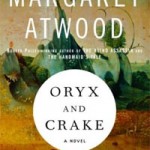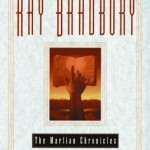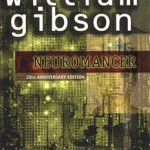Foundation by Isaac Asimov
In a galaxy not far far away, but in fact our own, the study of a science called psychohistory has been able to predict the future of an entire galaxy. Hari Seldon set into motion a series of events that would supposedly reduce the effects of a Galactic Empires collapse, and through five loosely connected short stories, the history he predicted unfolds. What is psychohistory? Possibly the simplest explanation is a study of mob psychology (as in a group of people, not necessarily gangsters) and patterns of mob behavior throughout history. With this Hari Seldon managed to predict the fall of an Empire, establish the Foundation to preserve science, and maybe–just maybe–prevent 30,000 years of barbarism throughout the galaxy.
I had always heard that Isaac Asimov is one of the authors to read in science fiction, as in “If you read no one else, read his work” so I took the plunge with Foundation. I hadn’t really researched the book beforehand and only knew that Asimov tended to write social science fiction; in fact he coined the phrase. Foundation is a great example of this sub genre consisting of stories which center around the predictive nature of a science called psychohistory. Psychohistory is essentially the study of how the human race has acted as a major mob group over the ages and applying it to the future to predict events. What Hari Seldon started as Foundation, on a planet in the furthest reaches of the galaxy, was not the savior of this Galactic Empire but the start of a new one.
As I mentioned before, the book is split into five parts, which are five somewhat independent stories about the genesis of the Foundation and then how it developed over time. By the second part it is discovered that Psychohistory is a dead science. Hari Seldon never passed it on or even allowed anyone advanced training in psychology so that no one individual could change the history he set into motion. I found all of this to be an interesting concept, and like some of the characters you will meet in the book, I too wonder if that’s the only way things could have gone, or perhaps Hari Seldon just had a God-complex and maybe needed some psychological help himself. However, as you read, you discover that he had indeed very accurately predicted exactly the Foundation’s first two great crises and in fact has a religion of science based on him, though he does caution that belief alone is not enough.
With all of the Asimov hype, I’m not sure if it lived up to my expectations. The characters are a bit unbelievable and are hard to relate to. However character development isn’t really the story, so I won’t put too much weight on that. I think I was a bit put off by the different parts being loosely connected. The first three parts deal chronologically with Hari Seldon’s founding of the Foundation, the Foundation’s first and second crises with Anachrion, contained in a cohesive if a bit expansive story. Parts four and five deal with commerce mingled with religion as the new thrust of the Foundation. Hari Seldon was clearly right: religion wouldn’t sustain the expansion of the new Foundation Empire.
I tend to like narratives that begin on page one, and end on the last page as a flowing thought, and to me Foundation felt a little disjointed. While it was clear that everything was in the same universe, there never were enough of the things I like in a story to keep me truly interested. I tend to lean towards character development and this is sparse. Character interaction is better in Foundation than development. However, again it’s a bit wooden and unbelievable. I wasn’t completely turned off by Asimov’s style. I just wish that any one of those five scenarios had more background and more information. Overall, it felt a little two dimensional, when it could have been three dimensional. Despite this feeling, I will more than likely try reading more Asimov in the future. None of these points are really so off-putting that I would never read his work again.
Overall, it was an interesting read and a very interesting concept. The idea that one man could develop a science that could so accurately predict the future course of human events is really extraordinary. It leaves me with the opinion that Isaac Asimov was likely a visionary and leaves me curious to read more of his work. Where perhaps he lacks in character study (at least here) he excels in galactic vision. Truly an interesting concept, and I look forward to reading more in the future.
“Never let your sense of morals prevent you from doing what is right”








For me the pillers of science fiction has are Asmoviv and Heinlein. Asmoviv has the sweeping story arcs but has always been weak on character devolpment.
Heinlein however has always been about the characters.
I would suggest
The moon is a harsh Mistress and a Lazarus Long novel Time Enough for Love
Mike: You have listed two of my top three Heinlein books. The other being Stranger in a Strange Land which I already did a review for. I’m trying to space out my reviews on Heinlein. For my Defining the Genre series I’m trying to make a point not to have any Heinlein books, because I could find one for almost any of the science fiction subgenres I’ll be discussing. I do love book suggestions though, what should be the next Asimov book I try?